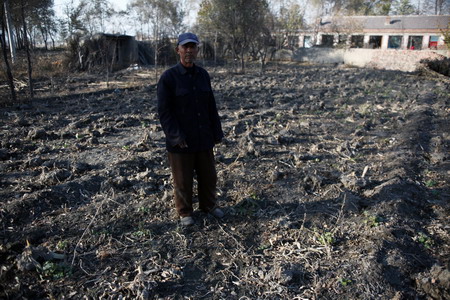Focus
Rare earth's surging price
By Gao Changxin (China Daily)
Updated: 2010-11-17 07:59
 |
Large Medium Small |
|
|
Consolidation efforts
China has about one-third of the world's rare earth reserves but accounts for 97 percent of the world's supply. The country shipped 32,200 tons of rare earth ore and products at an average price of $14,800 a ton between January to September this year, according to the Ministry of Commerce on Tuesday.
Only 32 companies have rare earth export certificates, including 10 foreign-owned firms.
Other countries with ample reserves, such as the United States, Russia and Australia sealed their mines out of consideration for environment production and labor costs.
The only rare earth mine in the US, the Molycorp complex at Mountain Pass in California, was at one time the leading producer. That was before it leaked faintly radioactive fluid into a nearby desert in the late 1990s. It was closed for good in 2002.
China's rare earth deposits dropped to 27 million tons by the end last year, compared to 43 million in 1996. Although the central government has banned rare earth green ore and 41 rare earth products from being used in processing trade, industry experts estimate the nation's reserves may still only last another 15 to 20 years.
In response, the central government has accelerated the speed and intensity of its efforts to consolidate the fragmented industry and has been cutting down the export quota for rare earth since 2005 to gain more clout with pricing.
As a result, some of the major rare earth oxides, such as neodymium, rallied 80 percent to 24,600 yuan a ton by the end of September.
The price hikes have, however, stirred unease among major trade partners, including Japan and the US, which accused China of manipulating the global market and threatened to raise the issue with the World Trade Organization.
"For a sustainable development model, China has more than enough reason to curb excessive mining and smuggling of its rare earth resources through industry consolidation," said Ma at the Chinese Society of Rare Earth. "The increase in price is reasonable and unavoidable as China can't afford to provide the world with cheap rare earth any more."
This year, Beijing has repeatedly indicated that it wants large companies to spearhead consolidation of the country's rare-earth sector to prevent the resource from being undervalued.
At the forefront of the ongoing industry shake-up is Inner Mongolia Baotou Steel Rare Earth High-Tech Co Ltd, which alone supplies 46 percent of the global market. After building a monopoly of rare earth mines in North China, the company is working with Jiangxi Copper Corp, which controls majority of rare earth mines in the region, to launch a unified pricing mechanism.
"A consolidated industry gives Chinese companies more bargaining power in international deals as it wipes out smuggling and reduces suppliers," said Zhang Rihui, secretary of Baotou Steel.
"I think consolidation and price increases are long-term trends in China's rare earth industry," he added.
An at the Baotou Rare Earth High-Tech Zone said higher prices will attract more foreign companies to open rare earth processing plants in the city, which will in turn help transform it from a resource base into a high-technology center.
About 30 projects are already operating in the zone, including France's Rhodia SA, while the Korea Development Bank recently signed a cooperation agreement to encourage South Korean electronics companies and automakers to establish processing plants there alone or with Chinese partners.
A total of 9 billion yuan has so far been invested in the zone and An expects that figure to reach 30 billion yuan by 2015, as China and Baotou obtains a bigger say in the international rare earth market.
"Industry upgrades based on a bigger say in pricing is the way out for Baotou and China's rare earth industry," said An. "It's a responsible and sustainable way to make use of China's rich resource. We have to think for our offspring and leave them with something."


